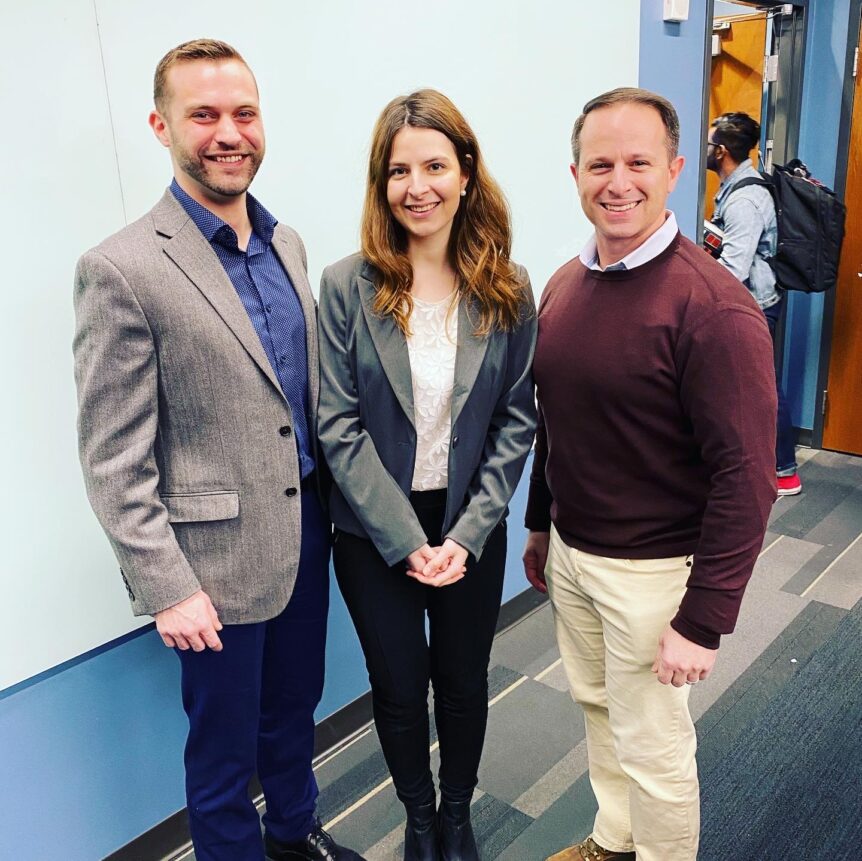The days are long, but the years fly by. This seems to be the new conventional wisdom for describing the perception of time. It didn’t seem as if 15 years had passed since I left the hallowed halls of the University of Illinois College of Law, but it certainly had been. Last week, I returned to my alma mater at the invitation of the Executive Dean of Career Services, Greg Miarecki, to speak about the business of law, expanding one’s job search outside of the Land of Lincoln, and professional communication for attorneys. After five talks in 1.5 days, it seems to me the future is brighter than we might have thought.
Law always seems to be behind the times. Indeed, law tends to be a reactive thing. One cannot be punished for a crime not committed. Regulations do not apply if one is not conducting a particular type of business or taking a certain action. We govern fundraising for businesses, with a law, the Securities Act, that is pushing 90 years old – what’s changed in 90 years? When a state legislature or the federal government works to change a law to update it to the modern era, the airwaves are splashed with the counter-movement’s protest that such a change would “end ______, as we know it”. Sometimes, wouldn’t this be a good thing?
As technology changes our lives and the legal profession, prospects for new attorneys are going to change. We may well be entering the age of the entrepreneur and small businesses, but law schools are typically slower to change direction than molasses, governments, and icebergs. What’s below the surface might be more dangerous for the legal industry than we ever thought. These obstacles in mind – enter Dean Greg Miarecki.
Several years ago, Dean Miarecki set out to prepare law students for the actual business of law. Over the past few years, about 750 students have been exposed to his Fundamentals of Law Practice course during their first year. A smaller group of upper class students enrolled in the annual Small Firm Practice seminar. One of the first students of that seminar, Hannah Weince, opened her own firm immediately after passing the Illinois bar because of the education she received in that class! She’s entering her sixth year of independent practice!
There was no such program when I was enrolled at the College of Law. I probably wouldn’t have taken the course anyway. Fifteen years ago, I had no clue that my career would take me in this direction. To be invited to speak to these students was truly an honor. What happened while I was there completely surprised me.
First, the students are engaged. They are thinking. As I and other presenters discussed the types of law practice, communications, opportunities, and the like – we could see the “lights coming on” as students made connections between our experiences and their education. The questions and comments demonstrated that students are thinking about the application of their education to the industry they will find upon graduation. They have realized that they have more control over their career destiny than they may have known.
Second, the legal industry they will enter will have practice areas that are just beginning to exist. Who will bear the risk and responsibility for an accident involving a self-driving car? How will cryptocurrency assets be transferred to heirs or split between them? What intellectual property rights and risks will exist with 3D printing? The students had an ugly moment of déjà vu when we combined these concepts into a single fact pattern that they might have seen on their torts exam. The point is that their book is yet to be written.
Third, artificial intelligence will change everything about the legal practice and the industry. Already, machine assisted document review has reduced the physical reading of documents from months to weeks to days, if not hours. Newer AI structures endeavor to provide better research results than keyword and Boolean searches in databases. The industry that these students will enter will focus more on the client experience and advisory services rather than form completion, research, and document review. The practice of law will become more human as fewer humans are necessary for the process.
These students are already thinking about it. Classes like this are on the cutting edge of what law students need to be successful. Other professional schools should take note.
Fortunately, this is a beginning, not an end. I also attended a dinner meeting at which one of the main topics of discussion was another innovative program for law schools. What they are developing doesn’t presently exist in legal academia and is sorely needed. While I cannot divulge details, I am excited to be a part of the program.
Returning to campus was a bit surreal and VERY COLD. Midwest winters are harsher than I remember. But, I would do it again and twice on a Sunday because some lessons cannot be taught from books. The University of Illinois put me on a path to success, suffering a little in the cold is a small price to pay to give something back.
Many people were involved in making this trip successful. I am especially grateful to the following people: Assistant Dean for Advancement, Bill Turner, whose breakfast conversation in early 2019 started this journey; Dean Miarecki, who allowed me to speak about my experiences in three different class sessions; Director of Career Services Alex Pillar, who organized a talk (on very short notice) regarding how to get a job out of state; the students of the Corporate and Business Law Association for putting together an unfiltered Q&A about the opportunities for students in boutique and small firms; and to all the students for being so hospitable and welcoming. I must also give a very special thanks to the Executive Director of getting stuff done – Vileta Austin, who made my stay at the Career Services Office feel like home.

